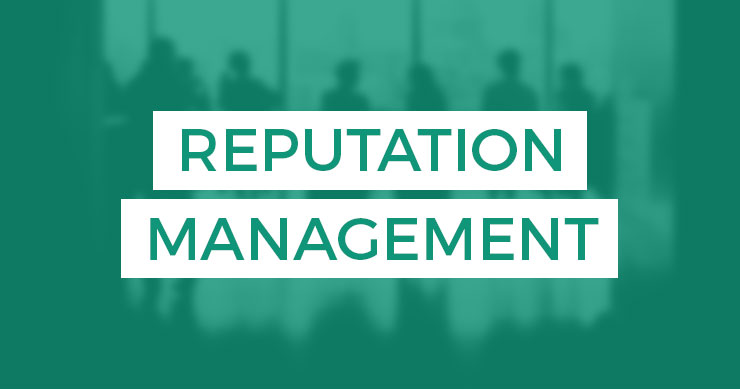The typical evolution of a Web community looks and sounds a little something like this:

- Stage 1: I love dogs! OMG, do I love dogs! If only there was a Web community to connect with others who love dogs. I’ll start one!
- Stage 2: Must. Get. Word out about my new dog community. Must host many constructive/ intelligent conversations, unlike those OTHER sites about dogs where users just howl and whine. We will be different. TELL YOUR FRIENDS! Send everyone!
- Stage 3: Dude, people are joining! Operation: Let’s Talk About Dogs is becoming a success! I am so smart! Floodgates open!
- Stage 4: People really are talking about dogs! They love dogs! They love my site! Community rules!
- Stage 5: People are talking about EVERYTHING, not just dogs! YEY! Harmony! Bliss! UNICORN FAIRY!
- Stage 6: Hmm. People…people are starting to fight. It’s okay, just some light infighting. Established users are being territorial and new users are snarky. It’ll sort itself out.
- Stage 7: Or…not. The fighting’s really bad now. Name-calling and stuff. I’m losing control of my comments.
- Stage 8: WHY WON’T EVERYONE STOP FIGHTING AND TALK ABOUT DOGS?
- Stage 9: :(
- Stage 10: Community For Sale. Reason? Community acts like animals.
But you don’t have to go down like that!
Sure, left unintended, your very well-intentioned Web community may end up becoming a haven for everything you hate – trolls, infighting and “your mom” nastiness – but you can set the tone early for the type of community you’re looking to build and to inspire the right kind of actions in your users. It just takes a little work. Actually, it takes a lot of work.
Start here.
1. Create & Enforce House Rules
I’m going to slaughter some bunnies here and just say it: Your community is not a free-for-all. This is your house and it belongs to you. And just like with any home, there are house rules. Rules that everyone is expected to follow or they can get the heck out.
Your job as moderator is to set the tone early for your community by creating your house rules, making them widely known, and then sticking to them even when it’s hard or you fear looking like the bad guy. Yes, the Constitution affords people the right to free speech, but no one said that free speech had to happen in the comments of YOUR blog. If you don’t want people talking to you like that (or to each other) tell them to stop. And if they don’t, show them the door.
Here are Outspoken’s rules of conduct. You break them, I have no problem kicking you out, deleting your comment, and tweeting bad things about you. It’s not like you haven’t been warned.
2. Show Your Face
 The biggest detriment to trolls and general nastiness is to develop an active presence on your own site. Be there to respond to comments, to enforce your code of conduct, to help steer conversations, and to show people that throwing trash on your lawn will not be tolerated. Said simpler: Show up.
The biggest detriment to trolls and general nastiness is to develop an active presence on your own site. Be there to respond to comments, to enforce your code of conduct, to help steer conversations, and to show people that throwing trash on your lawn will not be tolerated. Said simpler: Show up.
You created this community for a reason, right? Well then hang out there and make sure your vision is coming to life. No, you can’t control how your community grows, but you can sure as hell help it along. Be part of the conversations that are taking place. That’s what people want to see. They want to see you.
3. Encourage Established Members to Welcome N00bs
No one is more passionate about your community than those who got in on the ground floor. People who found you BEFORE you were even worth finding. Once you’re in Stage 3-4 and those new voices are coming in, reach out to your established members and ask if they’d help keep an eye out for new people and welcome them into the fold. Maybe even give them a fancy title or badge under their name when they comment for doing so. This will help established members to feel more invested in your growth, and it will also help newcomers to feel welcome and get the lay of the land faster. As a totally unintentional side effect it can also ward off New Baby Syndrome where established members ice out newcomers and purposely try to make them feel unwelcome. Not that that happens in Web communities.
Nope. Not at all. People are always very nice.
4. Encourage Dissent
If you’re not publishing content that takes a hard stand and forces people to reevaluate their beliefs, you should be. And when you do, encourage people to come and disagree with you. Let them know it’s okay for share a dissenting opinion. And don’t act like a douche when they do. Be a grown up. Have an intelligent debate and THANK THEM for coming all the way to your blog to tell you that you’re wrong. Because it’s a huge sign of respect. It’s a huge sign that people trust your community enough to call you out or to offer an opposing viewpoint. Because if they didn’t care they’d simply call you an idiot quietly and move on. Dissenters are necessary if you want to grow a healthy, non-koolaid-filled community. Love your dissenters. Email them privately to say thank you. You are nothing without them.
A community where everyone believes exactly the same thing isn’t really a community. It’s a cult. And those rarely end well.
5. Follow Where Your Community Takes You
 It may be your forum but that doesn’t mean you’ll be the one always steering the ship. Sometimes it’s in your best interest to shut up and listen for a second.
It may be your forum but that doesn’t mean you’ll be the one always steering the ship. Sometimes it’s in your best interest to shut up and listen for a second.
- What do your community members want?
- Are they hacking your system to make it work better for them?
- Are they using your community in a way you didn’t expect?
If so, listen. Your audience will tell you exactly what it needs and what will improve the experience. When they do, adapt to that. Don’t isolate your community because you think you know best. Maybe you do…and maybe they’re right.
6. Don’t Allow Bullying
Yes, I know I already told you to enforce house rules, but I meant it. If you don’t want to see people infighting or acting like jerks, stop them when they do. The first time. Regardless of who it is that’s doing the bullying.
7. Encourage Member Communication
Want to grow a thriving community that will eventually outgrow its diapers? Don’t act like a helicopter mom. While, yes, you want to be active in your community and allow people to see you…you also want to give your community members room to get in the habit of helping one another. These kinds of actions are huge health indicators for your community and are behaviors that should be encouraged, so stop hovering. When someone in your community asks a question, don’t immediately jump in to respond. Tweet it out to your community or see if anyone naturally asserts themselves to answer it. You don’t always have to be Santa to your elves. You want community members to get in the habit of helping and supporting one another. Let them do it. Encourage them to do it.
We all start communities with the best of intentions. We want to be “better than” what’s out there and all the sites that came before us, however, many communities end up suffering the same fate. But you don’t have to let it. Stay active in your community, encourage members to support one another, and let people know what is and is not tolerated and you can grow a community that not only stands the test of time, but that creates something worthy raving about.
Don’t let the Internet win.


